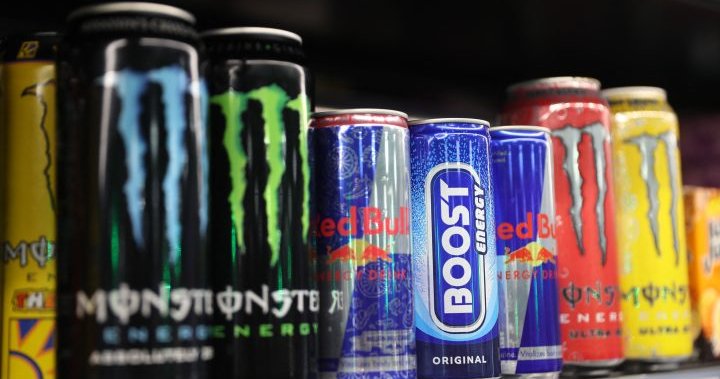
Should youth avoid energy drinks? Here’s why pediatricians say yes
Global News
Energy drinks are widespread across Canada, and while some have labels advising they are not recommended for those under the age of 18, purchases are generally not restricted.
As Canada recalls more energy drinks due to high levels of caffeine, pediatricians and health experts are raising concerns about the accessibility of the products and the impact they can have on youth.
Energy drinks are widespread across Canada, the U.S. and many other countries and can be purchased from corner stores and other retailers. While some have labels advising they are not recommended for those under the age of 18, the products are not controlled in the way alcohol or cannabis are.
The products’ quick energy boost, however, can come with health issues, health experts say.
“It’s a huge amount of caffeine for a child and a lot of caffeine for a teenager and someone may not just drink one drink,” said Dr. Anna Banerji, associate professor of pediatrics at the University of Toronto and the School of Public Health.
“It’s like them having six, seven, eight cups of coffee. And so they’re energetic, yes, they’re boosted (and) stimulated. But that’s not sustainable.”
She said that when people stop drinking energy drinks, potential withdrawal from caffeine includes sleeping issues, irritability, nervousness and anxiety.
According to HealthLink BC, energy drinks can come with side effects such as headaches, nausea, fast or irregular heartbeat or insomnia.
Banerji added that the beverages often have a large amount of sugar in addition to caffeine and therefore may have little nutritional value and empty calories.











